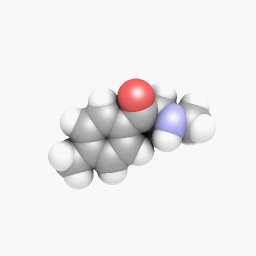
Goethe: Turning in his grave ...
ON TO GERMAN LATER.
 I woke up this morning. Sorry ~ I couldn't sleep in the night, so I woke up in the afternoon ~ after being bothered by someone on the phone who would have wanted me to score drugs for them, which I didn't want to do at 9am. (Not that I would EVER score for anyone else ~ that is highly illegal.)... Anyway: after all this, I finally slept under a tent-like uncovered duvet for several hours, and woke up around 2pm feeling cold, tired, penniless... and craving heroin.
I woke up this morning. Sorry ~ I couldn't sleep in the night, so I woke up in the afternoon ~ after being bothered by someone on the phone who would have wanted me to score drugs for them, which I didn't want to do at 9am. (Not that I would EVER score for anyone else ~ that is highly illegal.)... Anyway: after all this, I finally slept under a tent-like uncovered duvet for several hours, and woke up around 2pm feeling cold, tired, penniless... and craving heroin. But I didn't take any. Now I feel less cold, and tired. But little less miserable. But hey ~ that's drugs for you.
And now an illustrated delight: I have scarring like this (full-thickness "burns" from barbiturates ~ from adulterated heroin ~ though more than twice as big) although my skin is not black ...

OK and now the German bit. That headline, knowing my luck is probably spelled incorrectly, and I may even have got the wording totally wrong. But that would be ironic/poetic/thing/whatever because it is meant to read "MY TERRIBLE GERMAN!"
 Yesterday I did an online test, very quickly, that is supposed to gauge your level of proficiency. Unfortunately it concentrated on GRAMMAR which is my weakest point. Without going into detail, German grammar is (to me) fiendishly difficult. For which reason I actually found the supposedly arcane Japanese language far easier to grasp. Japanese is a so-called Synthetic or Agglutinative language, which means instead of placing prepositions (which mean something alone: on in upon, etc) you tag on "particles" expressing the same ideas to the end of already-formed words. English does this in that you say one girl, two girls. -S denotes the plural, but means nothing on its own. Likewise, "I want; I wantED" ~ the -ED means nothing alone but we all know it denotes a past action. Well Japanese you might say "Tokyo-e" meaning "to Tokyo" But! The -e, just like English -s or -ed, means nothing alone. That is the difference between a mostly "analytical" language (like English) and an agglutinative one, like Japanese. German is neither of these, it is "inflexional" and these tongues ~ in my opinion ~ are the most fiendishly difficult of all.
Yesterday I did an online test, very quickly, that is supposed to gauge your level of proficiency. Unfortunately it concentrated on GRAMMAR which is my weakest point. Without going into detail, German grammar is (to me) fiendishly difficult. For which reason I actually found the supposedly arcane Japanese language far easier to grasp. Japanese is a so-called Synthetic or Agglutinative language, which means instead of placing prepositions (which mean something alone: on in upon, etc) you tag on "particles" expressing the same ideas to the end of already-formed words. English does this in that you say one girl, two girls. -S denotes the plural, but means nothing on its own. Likewise, "I want; I wantED" ~ the -ED means nothing alone but we all know it denotes a past action. Well Japanese you might say "Tokyo-e" meaning "to Tokyo" But! The -e, just like English -s or -ed, means nothing alone. That is the difference between a mostly "analytical" language (like English) and an agglutinative one, like Japanese. German is neither of these, it is "inflexional" and these tongues ~ in my opinion ~ are the most fiendishly difficult of all. You can read a very good account of the absurdities of German grammar by Edgar Allen Poe, who explains them far better than I ever could, by clicking here.
You can read a very good account of the absurdities of German grammar by Edgar Allen Poe, who explains them far better than I ever could, by clicking here.But might I add, upon rereading his rant, I would guess Mr Poe had not studied any other foreign language if he is that confounded by certain other aspects of German... e.g. saying something "rests" somewhere, rather than "is" somewhere ... because that's what foreign languages are ~ FOREIGN!
Anyway, back to this test. Which unfortunately focused on grammar, my weakest point. I have been concentrating on building a passive reading vocabulary. But unfortunately the university prospectuses I read ~ and this test ~ were full of terms I just didn't know. Meaning I didn't really understand a great many of the phrases as I raced through. And I didn't spent much longer than 2 seconds on each question.
I got a B1, which is shockingly poor, considering how much time I slogged away at that fiendish Teutonic tongue in my youth ... even WITH a 19-year gap in between!
 The grades go A1 (lowest) A2, B1, B2, C1, C2 (highest) so you see I got 3 out of 6. DREADFUL!!
The grades go A1 (lowest) A2, B1, B2, C1, C2 (highest) so you see I got 3 out of 6. DREADFUL!!I would say my level (dreadful grammar aside) is somewhere between B2 and C1. To give an example: I very often grasp close to or exactly what a writer is saying ~ yet would flounder for ages to express such ideas in English. Because the German writer has played to the strengths of his or her own language.
But I couldn't express myself in writing in anything better than a heavily-accented pidgin-language, of the sort one might expect of an uneducated 3rd world peasant. Truly shocking. Although people from Iran, Pakistan etc ~ as well as from "3rd world" countries frequently attend universities (somehow) in the UK. And likewise I shall go to Deutschland ~ hahar!
You can find the Goethe Institut's German test here.
And the meanings of the marks here.
ミクロネシア連邦












.jpg)























6 comments:
Hahahaha ! I didn't know that German is soooo difficult to learn ! I spoke it already with 2 ! but I couldn't speak English when I was 2 years old, see ! I laughed so much about Edgar Allen Poe's description of learning German ! I realized for the first time that German was difficult when I had to translate German texts into English. As the sentences are miles long and the verb always at the end, I had to read first the whole thing before I could translate !
Have fun with German !
BTW you should say : Mein schreckliches deutsch (my terrible German)
Gleddy,
It's good that you didn't take heroin, even though you wanted to. You are strong and you can stay clean. I know it.
Sending love,
SB
Hang in there both with the German and staying clean.
So what's worse, the barbiturate scars or the German grammar? Both seem somewhat unpleasant.
Well if you could write it fluently,you wouldn't need to do the course! Baby steps Gleds! I'm so proud of you.
Gattina: you're just lucky. And you now live in that part of the world where everyone appears to speak at least 2 of: French, German, Dutch ... + English.... German is VERY involved and confused. No exaggeration that it's more difficult than Japanese. Especially when putting a simple sentence together. Japanese adjectives are like English ones ~ no endings! No words for "the" or "a"/"an" ~ and if there WERE I'm sure they wouldn't have endings either!
SB: but I felt shit all day
Syd: aye!
Baino: that's a very good point!
But if I DO want to study ih Germany I really have to shape up. Especially for an arts/humanities course... It only occurred to me yesterday that all these foreigners coming to London/etc to study TEND to do things like electronics or business. Active things, where expressing oneself gracefully doesn't necessarily come to the fore. I can't think of anyone I've ever known or known of who came here from abroad to do BA ENGLISH... not that that is any reason why I should not study German IN GERMANY
Post a Comment